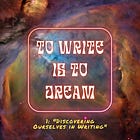WELCOME to part two of this series where we go through a college creative writing textbook (Dreams and Inward Journeys by Marjorie Ford and Jon Ford), read the readings, and do the assignments.1
Part one / chapter one is here:
Chapter One was called “Discovering Ourselves in Writing,” and this month’s chapter is “Discovering Ourselves in Reading.” I will admit I was initially a little bummed out. I mean, I love reading, but I’m trying to get writing done here. We started this textbook with writing. Would this month be all reading? I thought this was a creative writing book, not a creative reading book. Silly me: they are the same. I’m excited to tell you that the exercises in this month’s chapter were even more enlightening and words-generating than last month’s.
Why read but to figure out who we are? There might be other reasons, but that’s a good one. Dreams and Inward Journeys says:
“Readers are able to experience new and different realities vicariously through their reading of both fiction and nonfiction writings, and these vicarious encounters contribute to personal growth, bringing new intellectual and emotional experiences that help readers to find new resources within themselves.”
Oh, right! That! That’s one of the things I love about reading!
When you read, you absorb the work of others. You take it in and mix it inside you until you conjure something new. Reading is a textual conversation between you and the author, but, as a writer, you can take that conversation one step further, and have it inspire your own work.
Reading makes us better writers. In his book Show Your Work! Austin Kleon says, “A lot of the writers I know see the act of reading and the act of writing as existing on opposite ends of the same spectrum: The reading feeds the writing, which feeds the reading.” We can experience forms, structures, realities, and stories, that are new and inspirational to us. We can experience stories that are baffling or maddening, and think about why we don’t like them and what we should do with our own writing as a result. George Saunders had a great post about this recently, where he wisely said, “The only sin is falsifying your reaction.” So, yes, let’s think about that going forward, here — our reactions to what we read are true, for us, and by digging into them we can uncover some truths about ourselves, as writers.
I will remind you, once again, that all of this is optional. The beauty of learning things as adults is that you don’t have to do any of this. Read what interests you! Do only the assignments you want to!




